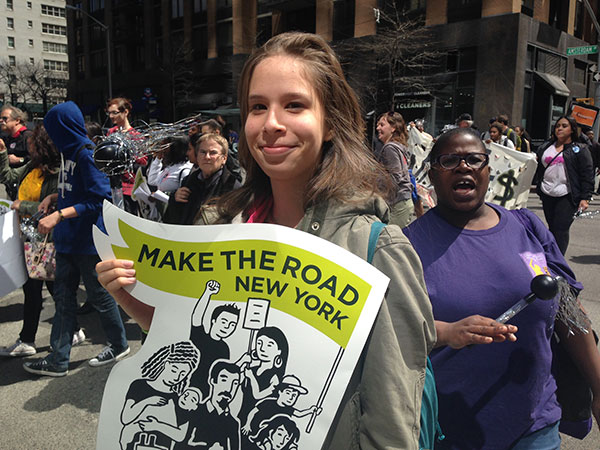A Step Toward Ending the School-to-Prison Pipeline

For years, the school-to-prison pipeline has afflicted communities of color in New York. From a young age, students begin to be treated like criminals within the confines of their own schools—from being handcuffed, suspended, and arrested for minor incidents to starting the day by walking through metal detectors and having police be the first people they see.
Young people treated as criminals in school are much less likely to succeed. I've seen it first-hand among my high school peers. There are more police officers than counselors in our schools, which makes students feel like they are expected to end up in jail rather college.
This year, I graduated from high school, and I am committed to help end the school-to-prison pipeline. We must stop pushing youth out of school – New York City should be leading the way.
Recently, there was good news for New Yorkers who want to see an end to punitive discipline and more support of students to succeed. The Mayor's Leadership Team on School Climate and Discipline, convened earlier this year and of which I am a member, issued a set of recommendations last month that include measures to reduce school suspensions and arrests, address racial disparities, and collect more important data that will show what we know has been happening inside our schools.
The de Blasio administration, which convened the Leadership Team, has responded enthusiastically, and has committed to incorporating these recommendations into official city policy. Already, the administration has issued a new mission statement that includes a commitment to "reduce the use of suspensions as a disciplinary tool and will eliminate the use of summonses and arrests for minor school misbehavior while continuing to advance school safety."
The time is right for strong action. Students cannot wait. In 2011, Make the Road New York and many of our partners worked to pass the Student Safety Act, which for the first time made public what we already knew: too many black and Latino youth are being pushed out of school through arrests and suspensions for minor behaviors. The situation has improved under Mayor de Blasio's leadership, but there are still major disparities in school suspensions and arrests that are hurting young people of color and students with disabilities across our city.
And, under the 2011 law, we are still not able to collect data on hundreds of arrests by police offers, all suspensions, and the use of handcuffs and other restraints (which have been used on students as young as five years old). We look forward to getting this data soon.
The new recommendations from the Leadership Team acknowledge continuing challenges and signal a citywide commitment to reform. There is no time to waste.
The next step will be critical. In the coming months, the de Blasio administration, the Department of Education, and the NYPD will work to turn these recommendations into policy. Meanwhile, they will need to ensure that young people of color—who have been disparately affected by this problem—continue to be part of this conversation, weighing in on how we are being treated in our city's schools and making sure that our wellbeing is front and center in the public discussion.
Equally important, resources need to be allocated to implement new programs, trainings, and staffing to make policy changes effective and ultimately successful.
We're moving in the right direction, but we can't stop now.
***
Christine Rodriguez is a Youth Power Project member of Make the Road New York, the largest grassroots community organization in New York offering services and organizing the immigrant community, and a member of the Mayor's Leadership Team on School Climate and Discipline. On Twitter: @maketheroadny
